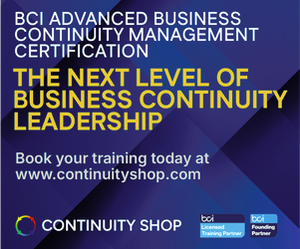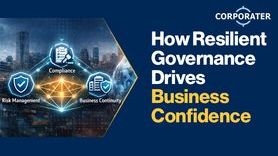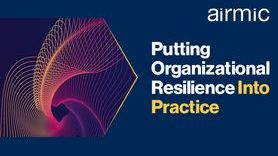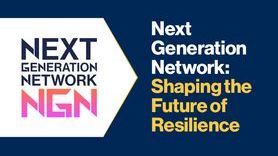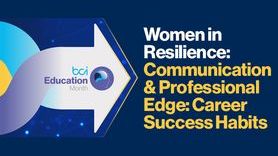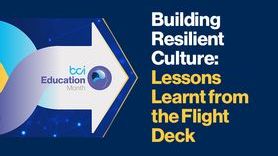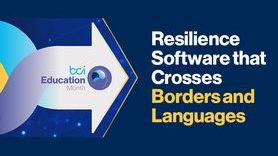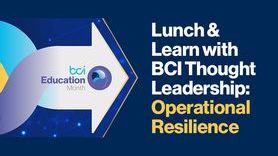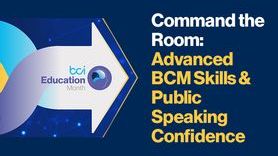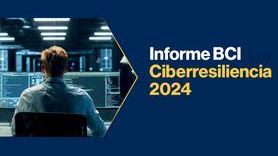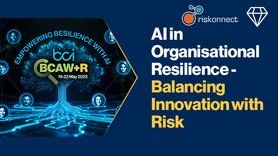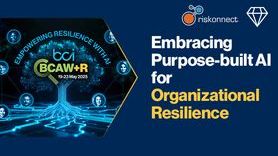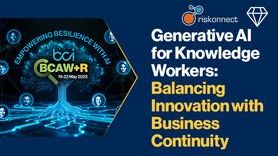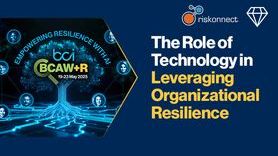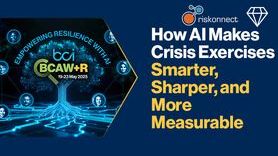Kyle Shinn: Getting into resilience
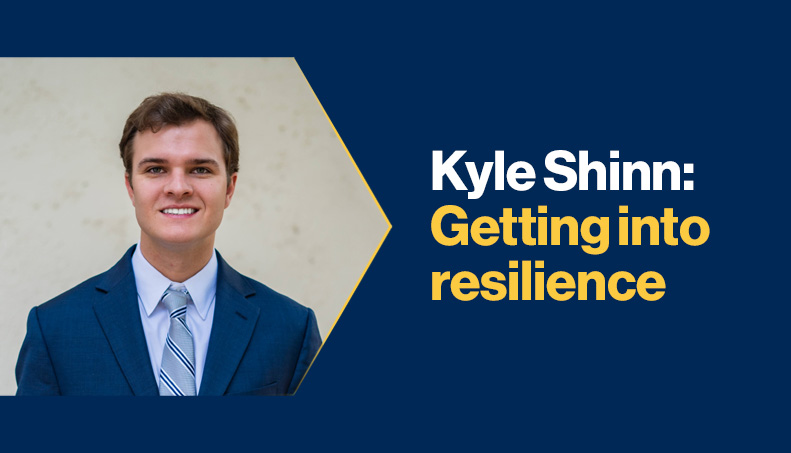
In this interview, the BCI speaks with Kyle Shinn about his recent efforts to join the business continuity and resilience sector, as well as his advice for those following the same journey.
Before joining the industry, Kyle had consulted in the financial and tax compliance field. Therefore, coming from a field with stringent regulations, he says that he had already acquired useful skills such as operational improvement and quality assurance, as well as variance and data trend analysis. Kyle was then introduced to the business continuity field through a business associate and soon became committed to joining.
What difficulties did you face and how did you overcome them?
The biggest challenge I faced was my lack of direct experience in the field. During my 12 months of searching, I saw few entry level roles in business continuity and resilience; and those I found required prior industry experience (often 5-7 years’ worth). Nevertheless, I often applied and tried to network with people in the field to hopefully circumvent and alleviate the experience barrier. I also hoped for someone to take a chance on me.
As a person that likes to learn and continually develop, I also challenged myself to obtain a professional certification in the sector to help bridge the experience gap. I researched and funded the course and exam fees on my own, which was a big undertaking but certainly worth it. My goal was to demonstrate my commitment to a career change as well as to develop a strong knowledge base. This was part of my strategy to build a foundation that would hopefully lead to employment opportunities and allow me to further develop my skills and experience in the field.
Networking was also critical. I joined different professional organizations in the sector and attended conferences. Developing those contacts was useful because they would give me advice and guidance as well as telling me their story. However, as someone trying to break into the field, a lot of people mentioned that I was an outlier. They said that many of those in the field had found it by being handed business continuity and resilience responsibilities by senior management rather than intentionally seeking it out as a career path.
What are the pathways available for young professionals to join business continuity and resilience?
There is a lack of direct pathways for newcomers coming into the field. For example, I never knew that the business continuity and resilience field existed when I was in business school at Arizona State University. Indeed, I pursued other internships in risk management when I was career searching, but if I had known this field existed, I likely would’ve attempted to break into it sooner.
Personally, I find that the general lack of knowledge about this sector, especially in the university setting, has hindered the growth of a direct pipeline for new people coming into the field and led to a disconnect for recent college graduates and employers. Once I obtain a foothold in the industry, I’d love to go back to my alma mater or start an initiative to educate university students about the opportunities that lie in this sector.
What can young professionals do to prepare themselves before joining this field?
In my opinion, soak up as much knowledge as possible. In the absence of direct experience, I would also suggest working within related or complementary fields to develop professionally.
Additionally, I found that attending industry conferences and joining your local resilience chapter will help open doors. These resources might just present opportunities that you wouldn’t have otherwise received.
What are organizations looking for from young professionals?
A willingness to learn and apply yourself. I've often been told that business continuity and resilience is very teachable, but you have to be open to it. Despite my lack of experience in the sector, there are many concepts that you can apply from your daily life or prior work experiences that are often resilience related – whether we realise it or not.
If you have drive, a willingness to learn, and can communicate effectively then organizations will truly value you.
Do you have a mentor in the industry?
I have always been a big believer in coaching and early in my career search I was advised about the importance of guidance. Indeed, as I was looking to network and learn from other individuals who were already in the field, mentoring was key for me because I was a blank slate in terms of experience in the sector.
However, I have been lucky enough to be paired with an excellent mentor in a business continuity focused mentorship programme. All my mentors have been incredibly supportive of my journey and willingness to learn. Having a mentor has been a significant help to me as I looked to network and learn from other individuals who are experienced in the field.
What advice would you give to those that are thinking of starting a career in business continuity and resilience?
Research and reach out to professionals in the field. This may begin by messaging professionals on LinkedIn, establishing those connections, and then using this as an angle to approach other industry professionals.
People are often willing to help you if they know that you have a mutual connection. At some point my network began growing further and faster, as people would often say: “Speaking to you now, I want to introduce you to this person.” After this started happening, it expanded to the point where I had a much larger network and, often, I would speak to people that I already had many mutual connections with.
These conversations helped me learn insights from the field and allowed me to gain a better first-hand understanding of what my journey was to entail.
What are your future plans?
I recently accepted a position at MHA Consulting, an industry leader led by an exceptional mentor of mine, Michael Herrera. I am excited to enter the industry early next year.
I am also planning to attend more business continuity and resilience conferences in the future. The conferences are not only a fantastic way to network with other professionals, but also an instrument to learn more about best practices and emerging concepts.
Anything else you want to add?
I would like to give a big thank you to the countless individuals that I have spoken to in the last year as I have looked to make this career change. Every person I have spoken to in the industry has been very encouraging and has always been willing to lend a helping hand.
I would especially like to thank Lisa Jones MBCI and Austin Cruz, as they both have been outstanding mentors providing support and guidance.
Key takeaways:
- Professional certifications may be a way to bridge the ‘experience gap’ for new entrants, as they provide industry-specific skills and knowledge.
- Networking with professionals in the industry is key. This can be achieved by attending industry conferences and joining local business continuity and resilience chapters.
- Having a mentor can help introduce new professionals into the sector, be a source of experience, and be a critical part of a network.
- Increasing the visibility of the business continuity and resilience sector to graduates and young professionals could be a key step in building a direct pipeline for new entrants into the sector.

